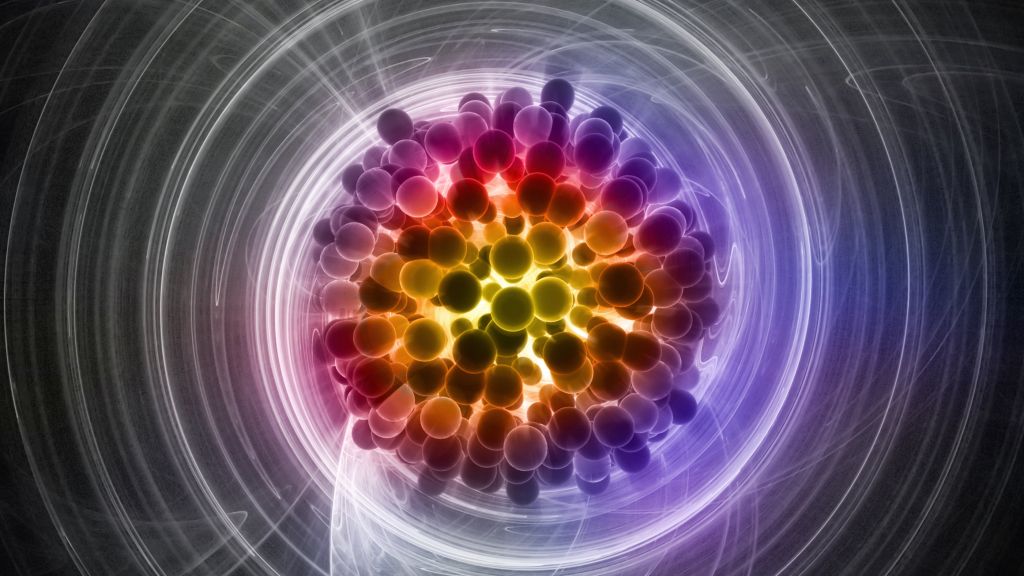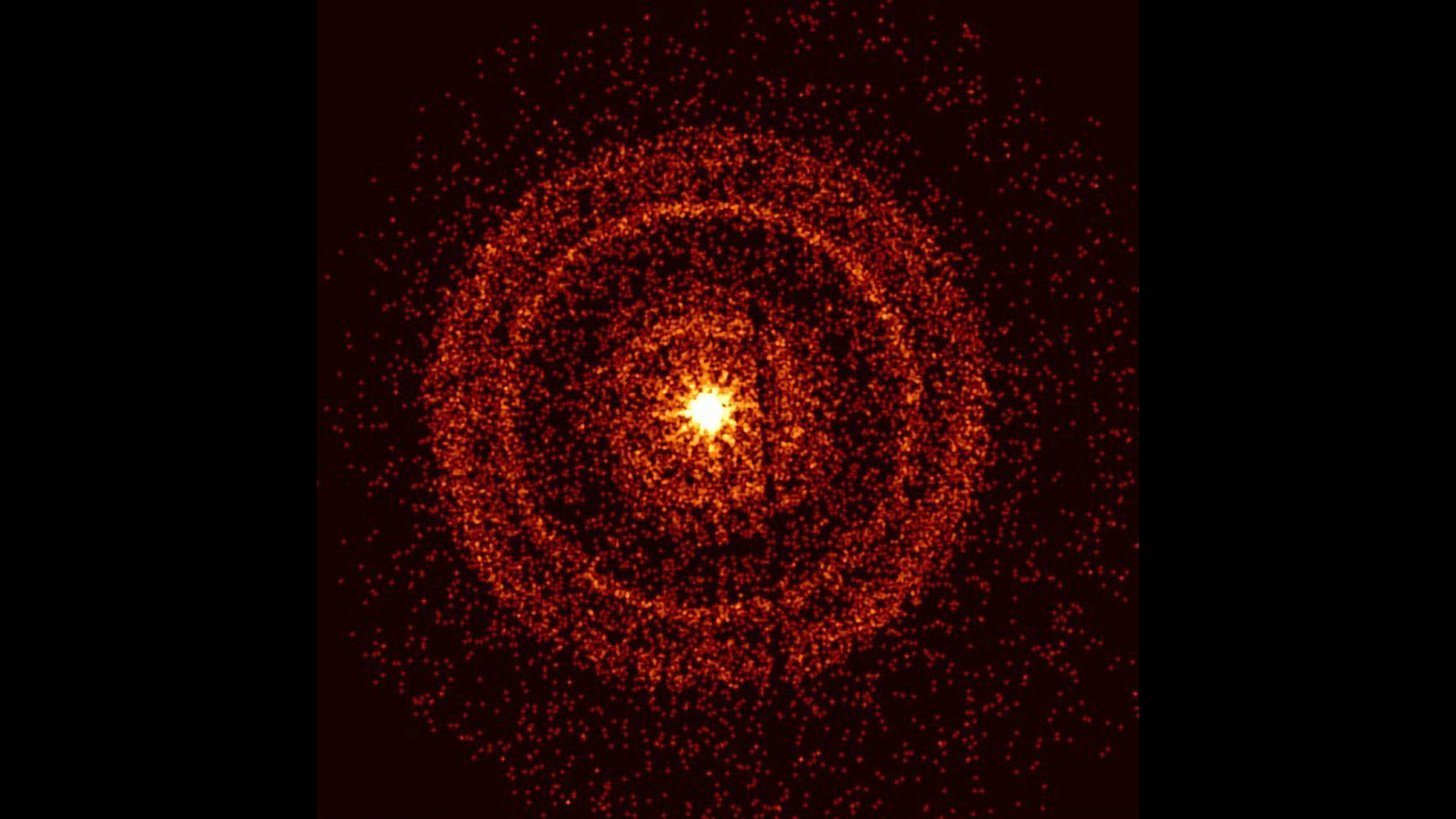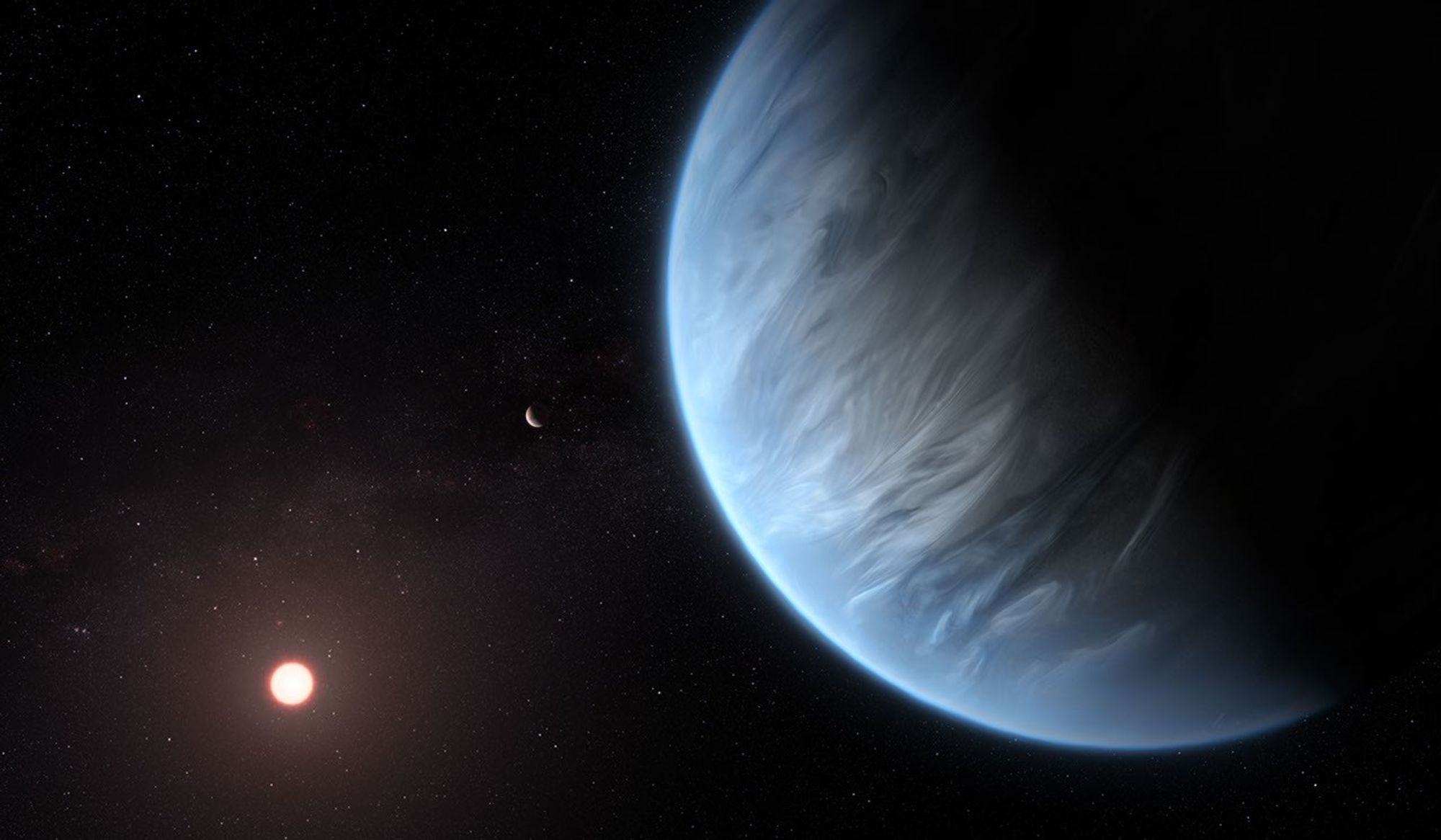Particle Physics
Latest about Particle Physics
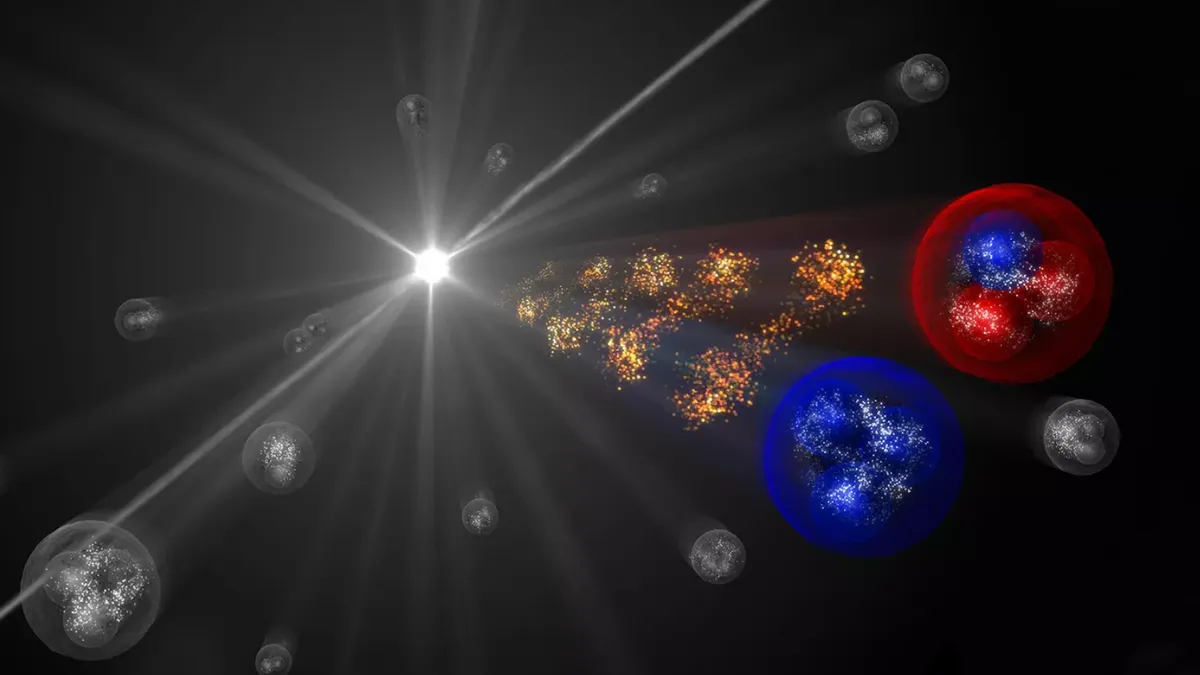
How 2024 brought us deeper into the world of particle physics
By Keith Cooper published
Dark matter, antimatter, W bosons and neutron lifetimes all feature in our top 10 stories.
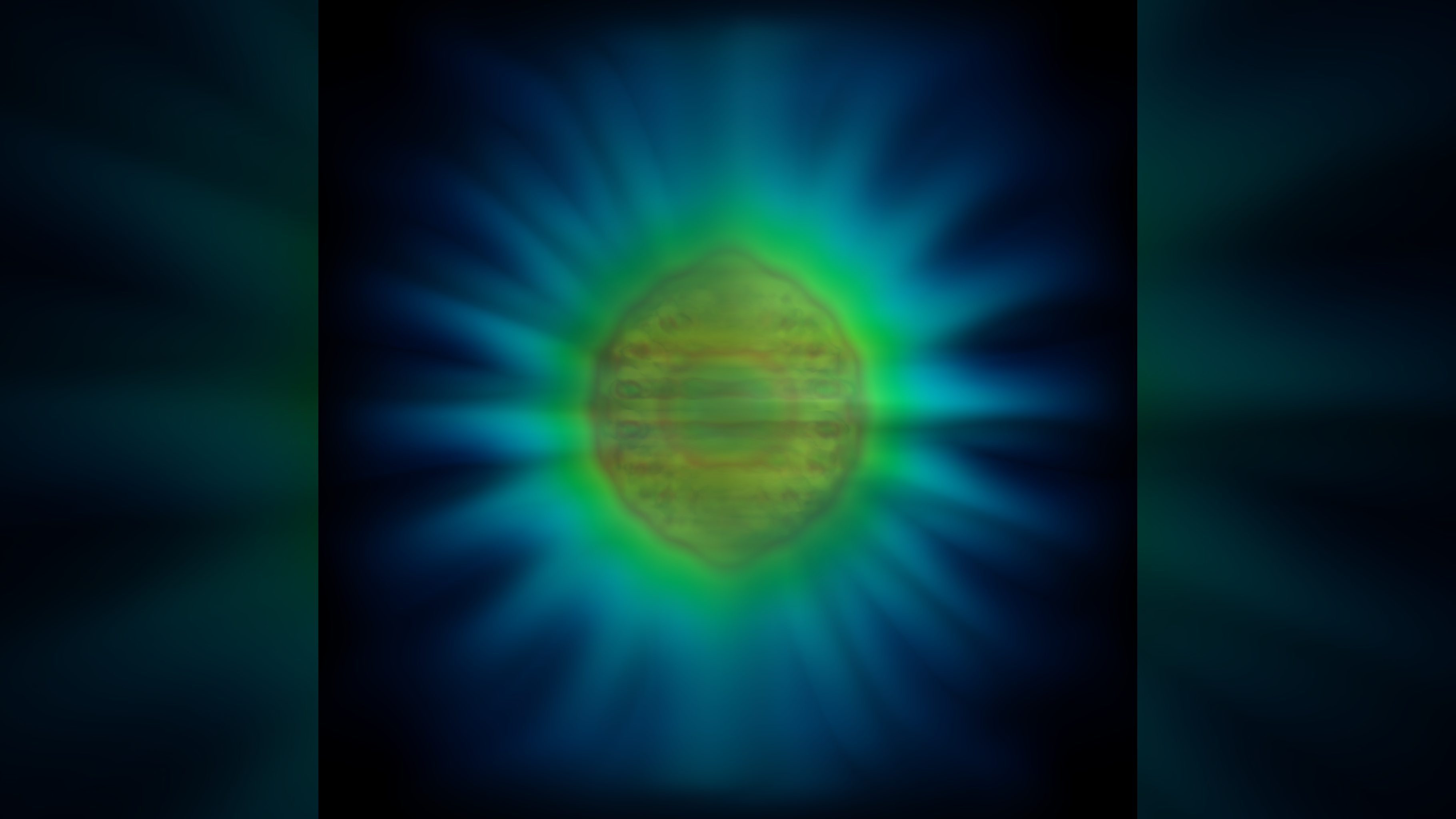
The shape of light: Scientists reveal image of an individual photon for 1st time ever
By Victoria Atkinson published
Active volcanoes were erupting on the far side of the moon 2.8 billion years ago, the first lunar samples returned from the far side reveal. 1

Cosmic rays could help assess hidden war damage in Ukraine
By Tereza Pultarova published
Energetic particles that arise when cosmic rays hit Earth’s atmosphere could help assess hidden damage to buildings in Ukraine after the war.
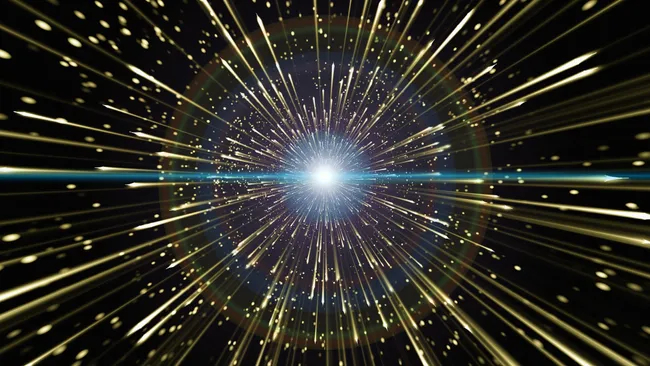
'Hawking radiation' may be erasing black holes. Watching it happen could reveal new physics.
By Andrey Feldman published
Primordial black holes may be exploding throughout the universe. If we can catch them in the act, it could pave the way to new physics, a study suggests.
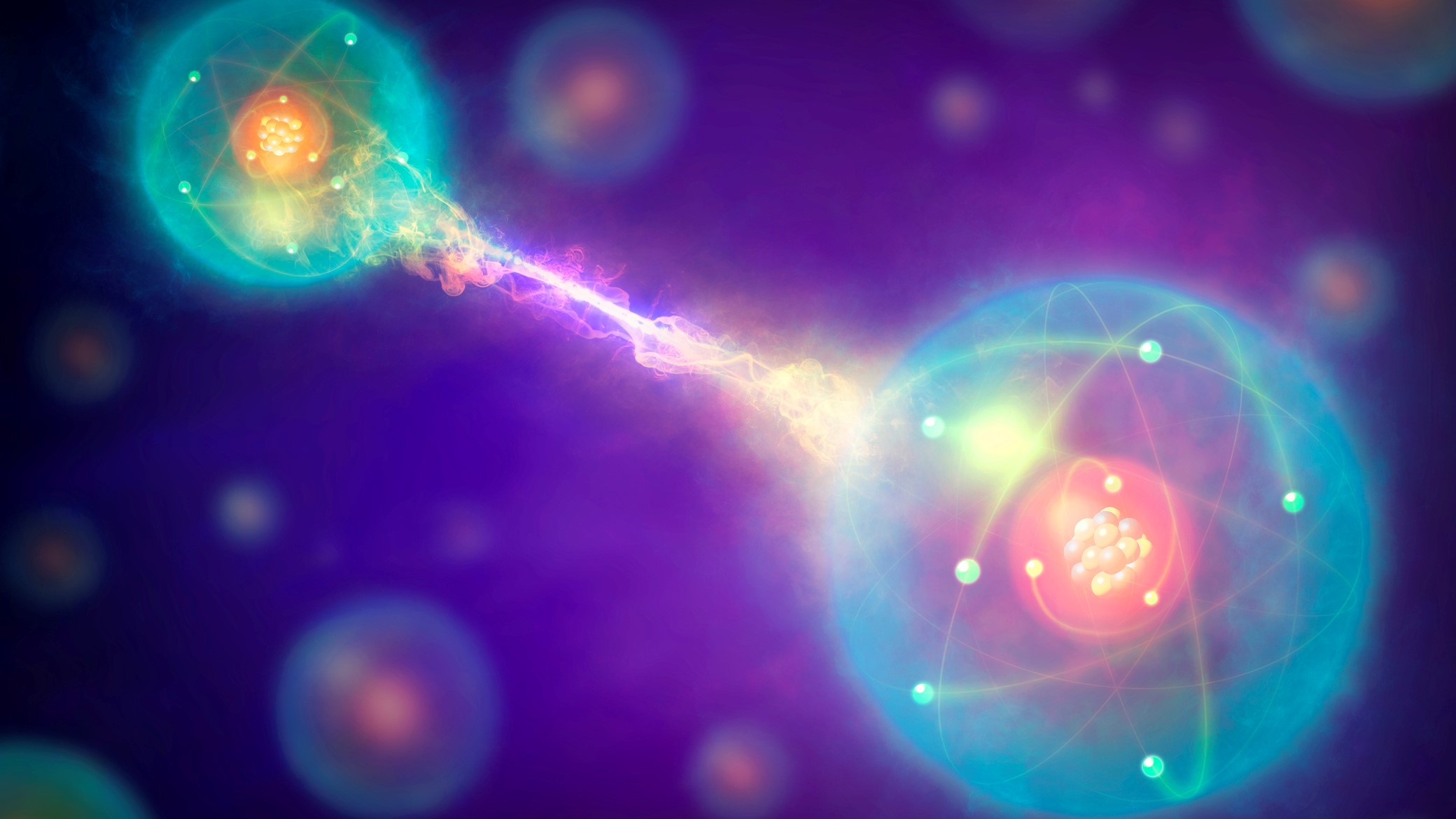
Quantum Entanglement: Unlocking the mysteries of particle connections
By Jesse Emspak last updated
Reference Quantum entanglement states that two particles are connected and affect one another even if those particles are light-years apart.
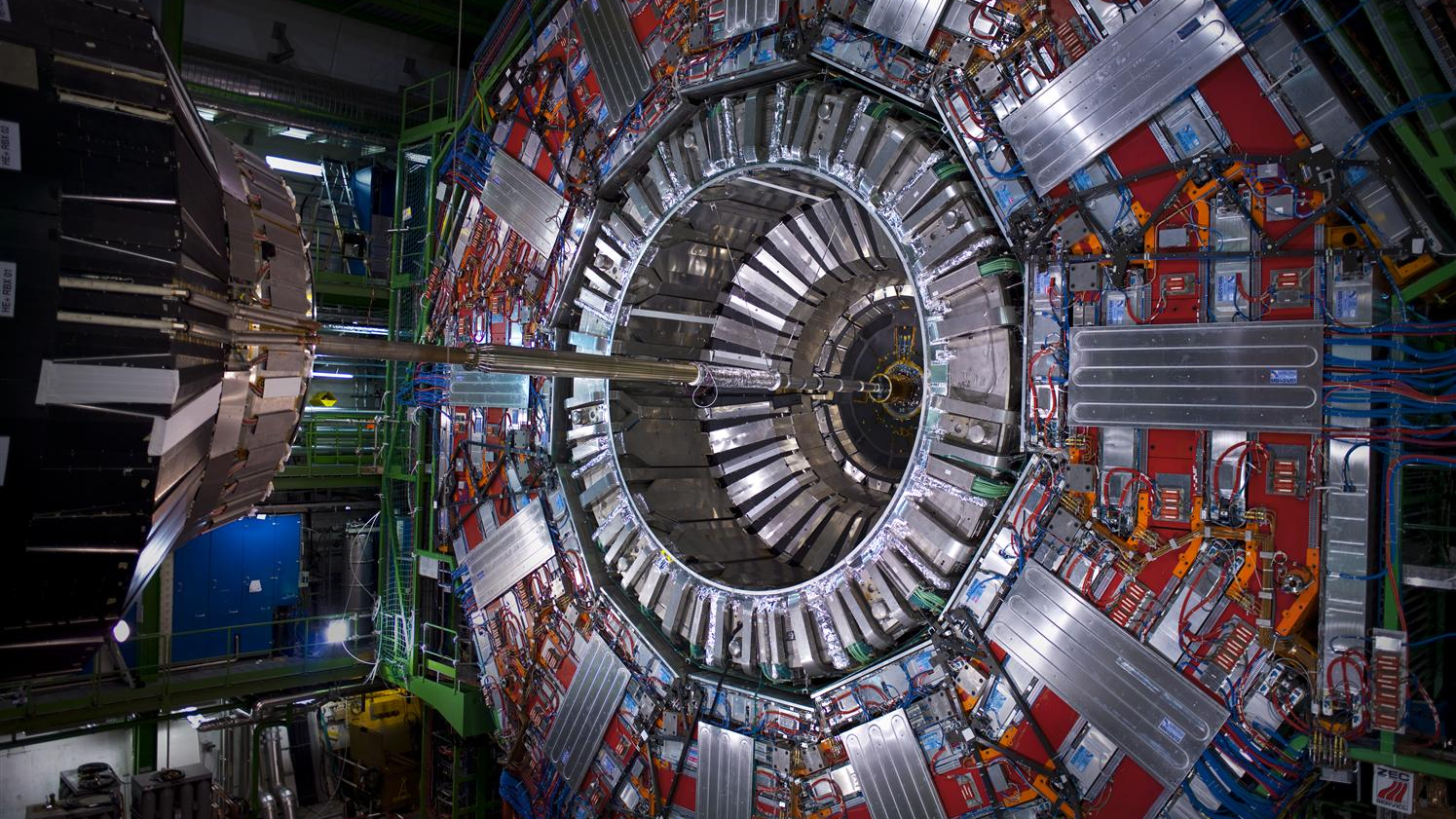
The W boson caused a particle mystery — but scientists have cracked the case
By Keith Cooper published
A puzzling discrepancy in measurements of the mass of the W+ and W– bosons, which are fundamental particles that carry the weak force, has been resolved by the Large Hadron Collider.
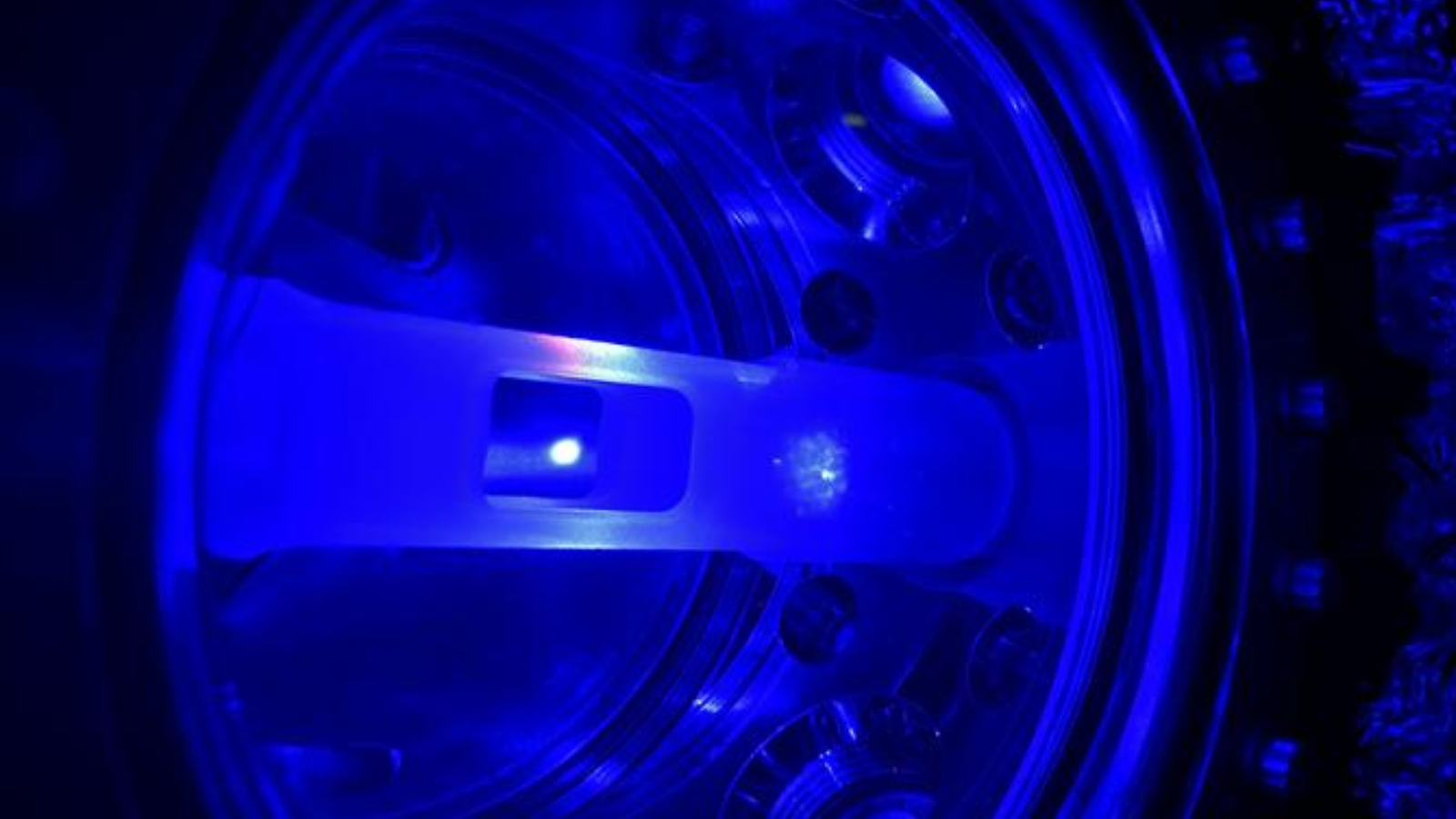
Highly precise atomic clocks could soon get even better. Here's how
By Robert Lea published
Superradiant atoms could help us measure time more precisely than ever before, a theory developed with the aid of the great-grandson of the "father of the atom," Niels Bohr.
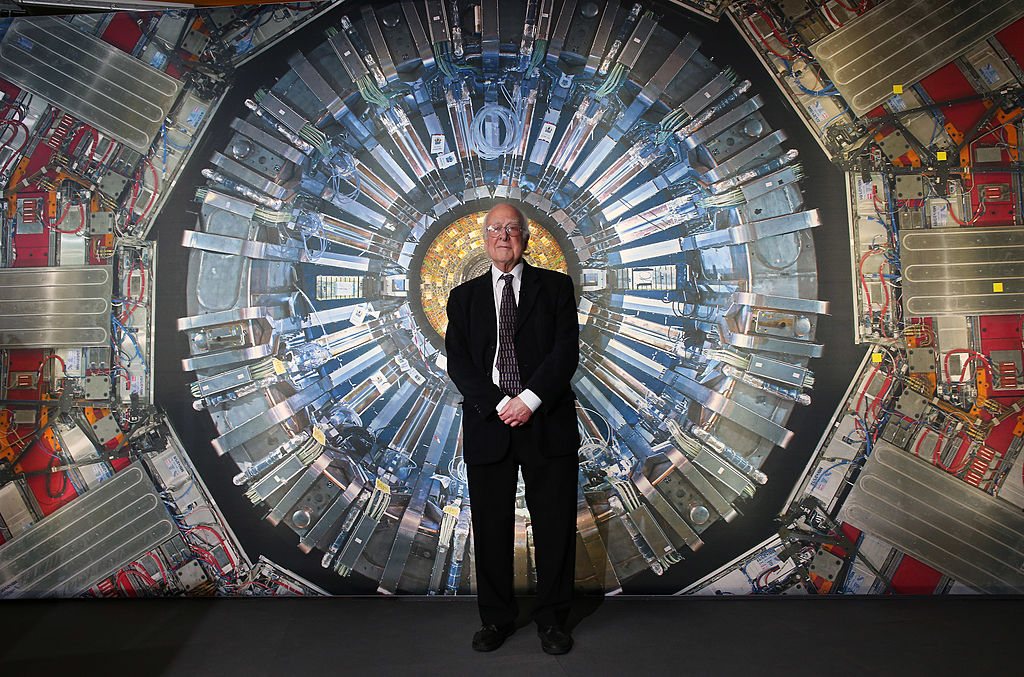
Why Peter Higgs leaves a massive legacy in the field of physics
By Robert Lea last updated
On April 8, 2024, Peter Higgs passed away. Pioneering the discovery of the Higgs boson, the mark the theoretical physicist has left on physics is immense.
Get the Space.com Newsletter
Breaking space news, the latest updates on rocket launches, skywatching events and more!
